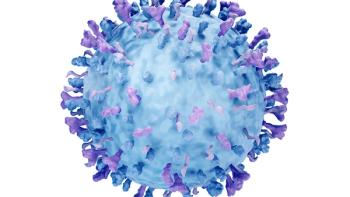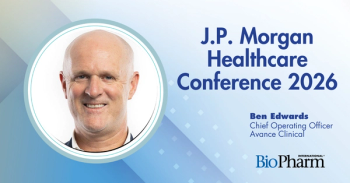
- BioPharm International-10-01-2011
- Volume 24
- Issue 10
Survey Examines Trends in the Outsourcing Relationship
The BioPlan Associates 8th annual survey identifies key outsourcing concerns of sponsor companies.
As outsourcing and offshoring become part of mainstream operations, biotherapeutic developers are more effectively modeling and assessing the value delivered by their outsourcing partners. As such, they are expecting increasingly more value and efficiency from their partners' services. Companies are more aggressively incorporating outsourcing as a manufacturing strategy, rather than as an ad hoc method of adding flex capacity or to simply eliminate overhead costs associated with lower-value production activities. As a result, choosing the ideal CMO is taking on greater importance.
Eric S. Langer
With this in mind, BioPlan Associates researched key problems of the CMO–client relationship that may be inhibiting productivity. In this year's 8th Annual Report and Survey of Biopharmaceutical Manufacturing Capacity and Production, we identified 20 problem areas and discovered that nearly 95% of biodevelopers are concerned with their CMO's timeliness (see also, the sidebar on "Survey methodology")(1).
Survey methodology
CLIENTS' KEY OUTSOURCING CONCERNS
The BioPlan survey, which received responses from 352 global biomanufacturers, asked respondents to identify the critical issues they face when considering outsourcing biopharmaceutical manufacturing to a CMO (see Figure 1). Respondents said their number-one concern is that the CMO "stick to a schedule," with 93.2% of respondents indicating this attribute as "important" or "very important." The concern surrounding this attribute may reflect the difficulties in managing complex projects in an environment where timeliness is crucial. In biologics, manufacturing delays can affect an entire drug-development program.
Figure 1: Critical attributes (ranked as "very important" and "important") of a CMO as identified by biopharmaceutical manufacturers when considering outsourcing (2011). (ALL FIGURES ARE COURTESY OF THE AUTHOR)
When analyzing the "very important" responses to the survey, only the "comply with my company's quality standards" choice (59.1% of respondents) beat out scheduling problems. In other words, while scheduling issues are generally "important" to almost all biomanufacturers, quality standard compliance is "very important" to more than half.
Continuing to sort by "very important," the next critical attribute, according to respondents, was "protect intellectual property," which approximately 57% chose. Biomanufacturers expect that their product-specific manufacturing operations will be kept proprietary, and this concern may be the result of the increased focus on outsourcing of operations to new destinations. Even so according to Dr. Wolfgang Noe, a senior consultant at BioProcess Technology Consultants, this expectation should not be a large concern because any CMO that violates IP practice is not likely to be in business long (1).
DAN WARD
Following IP concerns, survey respondents in the "very important" factor area said a CMO's ability to "effectively handle cross-contamination issues" and to "stick to a schedule" were next on their list of critical factors. This trend aligns with the 2010 survey results in which sponsors demand greater levels of professionalism, performance, and effectiveness in both managerial and technical areas from their outsourcing vendors (2).
Contrary to anecdotal commentary from both CMOs and sponsors, the importance of a CMO's location showed up as being relatively unimportant (2.3% of 2011 respondents say the factor is "very important," as opposed to 10.4% who said so in 2006) (see Figure 2). This decrease may be a function of the industry's increasing globalization, particularly with respect to manufacturing clusters appearing in Asia. These clusters in aggregate, according to BioPlan's Top 1000 Global Biopharmaceutical Manufacturing Index, rival those of Europe in terms of number of facilities, if not in overall concentration of manufacturing (3). The lack of concern shown for location also reflects the offshoring of greater numbers of successful production projects and the degree of outsourcing-management expertise that sponsors are acquiring.
Figure 2: Critical attributes (ranked as "very important") of a CMO as identified by biopharmaceutical manufacturers when considering outsourcing (2006â2011).
TRENDS IN CMO SELECTION
We contacted Dr. Sonia Kansal-Kalavar, associate director of Biotherapeutics and Vaccine Outsourcing at Pfizer, who noted that the single most important trend in outsourcing today is the ability for chief officers to cull "the most qualified vendor to fit the gaps in their drug development." Determining how a vendor makes the grade over time is an important trend to follow, and one which we explore in our 8th Annual Report.
BioPlan found that during the past 5 years, the rankings of critical CMO attributes have shifted. For example, "establish a good working relationship," moved from the number-one spot in 2009, to the number-six spot this year, with 45.5% of respondents indicating this factor as a "very important" selection attribute. "Comply with my company's quality standards," perennially ranks as a leading concern, and takes the top "very important" spot this year, as it did in 2010.
As the industry matures, it seems that customer service and "establishing good client-vendor relationships" are improving. Maintaining good client–vendor relationships continues to be important, but the persistent "working relationship" issues may be taking on less importance. This change may be due to the current economic situation, where effective working relationships are becoming more vital because companies are experiencing internal staffing cuts.
STRATEGIES TO ADDRESS OUTSOURCING CONCERNS
Evaluating the changes in factors that sponsors use to select a CMO provides perspective on how effective CMOs have been at addressing these critical concerns. During the past four years, these shifts have been relatively significant. The largest increase has occurred in the importance of CMOs' handling of cross-contamination: this factor jumped significantly during the past five years, with an additional 32% of the survey respondents identifying this attribute as "very important," or "important." In contrast, capacity issues have shrunk substantially, by almost 1 in 5 respondents in just 4 years, reflecting the worldwide overcapacity situation.
Partly as a result of the current economic climate, biopharmaceutical companies seem to have recognized the need to focus more heavily on productivity, processes, and quality. As such, companies are becoming increasingly risk- and cost-averse, especially for high-risk, high-cost outsourcing projects such as those involving biologics. These economic pressures have created stress and problems in the client–contractor relationship. The BioPlan study makes clear that despite ranking shifts during the past 3–4 years, the core critical attributes of an ideal CMO, such as quality standards and IP retention, remain consistent. For biodevelopers increasingly working within a globalized, competitive landscape, the benchmarking of these concerns is essential to getting the most out of the client–contractor relationship.
CMOS' PERSPECTIVE
Our survey also analyzed the client–CMO relationship from the perspective of CMOs. We identified 11 critical issues that CMOs claim to be the most common mistakes their clients make. The data offers insight into gaps that exist—and that can be improved—in the client–CMO relationship. We asked respondents to rate client-driven problems as "very common" or "common" (see Figure 3).
Figure 3: Most common mistakes (ranked as "very common" or "somewhat common" problems) made by biopharmaceutical sponsors according to CMOs.
Unsurprisingly, CMOs identified the top problem as "clients don't build in sufficient time for the project (unrealistic timeframes)." This year, 92% of CMO respondents indicated this attribute as a problem. The factor grew significantly from last year when it also topped the list at 80%. Indeed, timelines are now a critical factor for 60% of CMOs who responded to the survey, as compared with less than half of 2010 respondents.
Clearly, the issue of timeliness is a stress point on both sides of the client–contractor relationship. According to Noe, this problem is "often the case in client–CMO collaborations.... In one scenario, an inexperienced small company [had very] unrealistic ideas about how to achieve high-performance processes, then move into clinical manufacturing, release clinical grade material, move into IND-submission, and have patients recruited for early clinical studies."
The most widespread critical problem, identified by 92% of CMOs as either "very common" (74%) or "somewhat common" (18%), was that "clients want to contain cost by doing development runs, but still expect successful full-scale manufacturing." Resolving this problem may require better management of expectations, improved project management, and more controlled exchanges of information.
Interestingly, although further down the list of critical factors affecting the client–CMO relationship (at 84%), the concern among CMOs that "clients don't recognize the variability in process development" suggests that the majority of biomanufacturers, who are under increasing cost and time pressures, are pushing that stress onto their suppliers and contractors.
Other pain points on the part of CMOs include: "clients don't appreciate the difference between small-scale and full-scale manufacturing" and "clients don't understand their [i.e., the CMO's] role in regulatory submissions." Both concerns involve the need for effective time- and project-management; in a high-stress environment, these factors may be in short supply.
As predicted, virtually all of the problem areas evaluated in the client–CMO relationship from the CMO perspective went up in level of importance compared with the 2010 survey results.
The largest jump was seen in how CMOs find they are expected to resolve the most difficult technical problems (90%). This increase over last year (from 68%) may represent a change in how bio/pharmaceutical clients are allocating their internal staff resources, largely expecting CMOs to work harder on challenging technical issues. Some representative comments offered by study respondents include:
- "Client expectations are too high (e.g., want the best service for the least price and completed in an unrealistic timeframe)."
- "Clients are often their own biggest problem [regarding delays] because they do not provide deliverables or timely document review."
- "The biggest problem by far is that clients want to limit or eliminate development and engineering runs to save costs; this ends up hurting their production runs with unforeseen problems."
- "Clients sometimes don't provide enough information in their raw materials, cell lines, etc."
CONCLUSION
There is no question that outsourcing is becoming more important as more companies, including virtual companies, search for opportunities to get their products into clinical trials and to the market. Established companies will continue to search for partners to help move their outsourced products to free up capacity for new, upcoming products from their pipelines. An additional market will arise as recognized "innovator" companies enter new markets and need to create capacities for those activities. From this perspective, the future for the outsourcing business is bright.
Yet, economic realities dictate that Big Bio/Pharma continues to move back toward "core competencies." They are cutting costs wherever possible and increasing productivity to do more with fewer available resources.
Another trend observed in these difficult economic times is the urge to cut corners, such as avoiding engineering runs and long-term investigations. Taken together, these strategies do not benefit client–CMO relationships. An understanding of each partners' situation and a greater willingness to communicate, manage staff and time, and to compromise are required to build effective and long-lasting relationships.
Eric S. Langer is president and managing partner at BioPlan Associates, and a member of BioPharm International's editorial advisory board, tel. 301.921.5979
REFERENCES
1. BioPlan Associates, 8th Annual Report and Survey of Biopharmaceutical Manufacturing Capacity and Production: Survey of Biotherapeutic Developers and Contract Manufacturing Organizations (April 2011).
2. BioPlan Associates, 7th Annual Report and Survey of Biopharmaceutical Manufacturing Capacity and Production: Survey of Biotherapeutic Developers and Contract Manufacturing Organizations (April 2010).
3. BioPlan Associates, BioPlan's Top 1000 Global Biopharmaceutical Facilities Index,
Articles in this issue
over 14 years ago
BioPharm International, October 2011 Issue (PDF)over 14 years ago
Education and Training in Biopharmaceutical Developmentover 14 years ago
Trends in Biologics Outsourcingover 14 years ago
Contract Services Spending: Who's Spending What, and Where?over 14 years ago
Global Health Challenges Spur Vaccine Developmentover 14 years ago
Preparing for the Last Warover 14 years ago
Perspectives in MicroRNA Therapeuticsover 14 years ago
How to Choose the Right CMONewsletter
Stay at the forefront of biopharmaceutical innovation—subscribe to BioPharm International for expert insights on drug development, manufacturing, compliance, and more.




